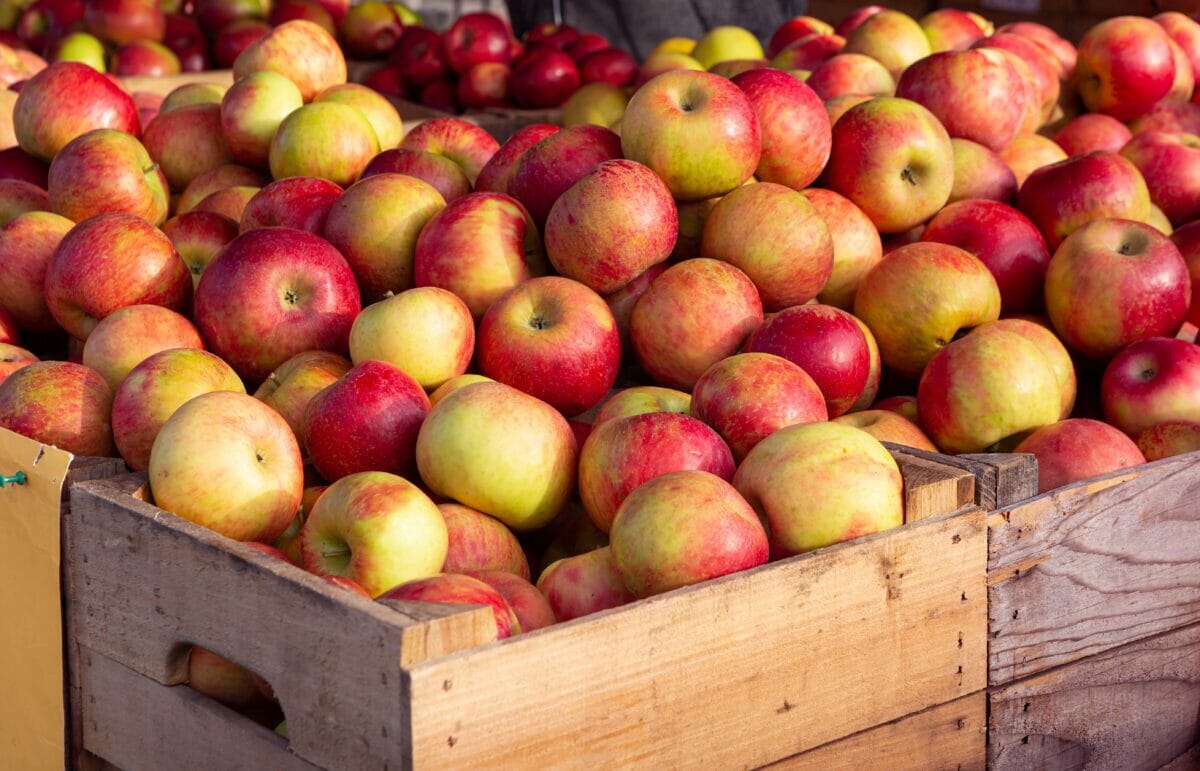Cornell University researchers have successfully mapped 97 percent of the apple’s genome, a boon for breeders working on future varieties.

Researchers at Cornell University have successfully sequenced the Honeycrisp apple genome, which will help scientists and breeders work to create the “perfect” apple.
The process used, called genome sequencing, involves researchers essentially mapping the genetics of an organism—in this case, the Honeycrisp apple. These maps allow future growers and scientists to understand the genetic traits of the specific cultivar, or a variety of fruit produced by selective breeding, more clearly and enable them to cross-breed with the most desirable traits the apples possess.
Unlike past sequencing studies, such as the Golden Delicious apple sequencing in 2010 that mapped out about 68 percent of the apple’s genes, the project at Cornell produced a nearly full genetic picture that encompasses 97 percent of the Honeycrisp’s genetic makeup.
The Honeycrisp apple is a particularly sweet cultivar to sequence, as the fruit variety is the most sought-after of all apple varieties on the market, bringing in almost double the dollar amount per pound of any other popular apple varieties. Yet the A-plus apple breed can sometimes be finicky in the field—a trait scientists hope to avoid in future breeding crosses.
Alongside the apple’s desirable traits, including cold-hardiness, taste and texture and resistance to some common diseases, it also presents challenges to growers. Honeycrisp apple trees tend to struggle to get enough nutrients and require hands-on inputs from farmers. The apples also suffer from some genetic-led problems, such as susceptibility to a fungal issue called bitter rot, as well as a syndrome called bitter pit, the result of calcium imbalance within apples.
Mapping genomes can get to the core of a fruit’s complications, allowing crop breeders to weed out these undesirable traits genetically.
“If we don’t know the genome and the genes in Honeycrisp, then we cannot specifically target and select for favorable traits and select out unfavorable traits through breeding,” Awais Khan, an associate professor in the School of Integrative Plant Science at Cornell AgriTech, told the Cornell Chronicle.
Even before the apple’s genome sequencing, the variety made for a popular choice when it came to cross-breeding. The Honeycrisp is already the parent fruit to nine other apple cultivars on the market. Now, with a clearer picture of the Honeycrisp’s genes, scientists can use the information to more closely hand-pick genetic traits—such as increased disease resistance—for future apple varieties.